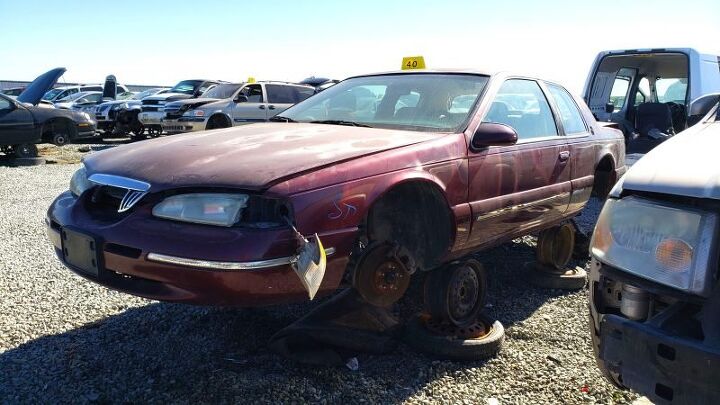#mn12
Junkyard Find: 1997 Mercury Cougar XR7 30th Anniversary Edition
Ford’s Mercury Division built rear-wheel-drive Cougars from the 1967 through 1997 model years, followed by a 1999-2002 run of front-wheel-drive Cougars based on the Mondeo chassis. Today’s Junkyard Find is thus historically significant on three counts: it’s the last model year for the rear-wheel-drive Cougar, it’s a special edition commemorating the 30th anniversary of the debut of The Man’s Car, and it’s the last year for the XR7 luxury package. Bitter tears, indeed!
Junkyard Find: 1997 Mercury Cougar XR7 With Florida-Style Faux-vertible Option
When I saw this car at a Denver self-service yard, I had to wonder if Ford really sank so low in the late 1990s as to make this godawful crypto-laundau roof a factory-installed option on the MN12 XR7. I haven’t been able to find any references to such an abomination in any of my reference books, so it’s probably a safe assumption that we’re looking at an aftermarket conversion.
Junkyard Find: 1994 Mercury Cougar XR7 "Prowler"
When the Cougar went from the Fox platform to the MN12 platform for the 1989 model year, it got an independent rear suspension and a longer wheelbase for even more personal luxury. The ’89-97 Cougar had style, and thus the Prowler Edition XR7 makes perfect sense.


















Recent Comments